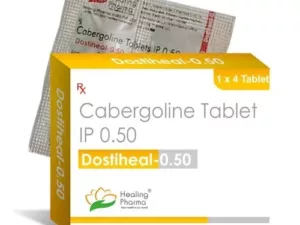Hydrocortisone 20 mg: Uses, Dosage, Side Effects & Warnings”
✅What Is Hydrocortisone?
Hydrocortisone is a synthetic version of cortisol, a glucocorticoid hormone naturally produced by the adrenal glands. It is classified as a systemic corticosteroid and is commonly prescribed to treat a variety of conditions involving inflammation, immune response, and adrenal insufficiency.
- Brand names: Cortef, Hydrocortone (oral)
- Drug class: Glucocorticoid (corticosteroid)
✅Hydrocortisone 20 mg Tablet – Purpose & Indications
Hydrocortisone 20 mg tablets are used to replace or supplement natural cortisol in the body or to suppress inflammation and immune responses.
✅Mechanism of Action
Hydrocortisone works by:
- Binding to glucocorticoid receptors in cells
- Modulating gene expression to reduce production of pro-inflammatory substances (cytokines, prostaglandins)
- Suppressing immune system activity, particularly T-cell activation
- Maintaining cardiovascular, metabolic, and stress response functions (especially in adrenal insufficiency)
✅Dosage & Administration
🔹Typical Dosage for Adults:
- Adrenal insufficiency (replacement):
- 15–30 mg/day divided into 2–3 doses
- Commonly: 20 mg in the morning, 10 mg in the afternoon
🔹Anti-inflammatory/Immunosuppressive Use:
- Varies widely based on condition (can range from 20–240 mg/day)
🔹Route of Administration:
- Oral tablets
- Also available in injectable and topical forms
Note: Always take under the supervision of a physician. Doses must often be tapered to avoid adrenal crisis.
✅Side Effects
🔹Common Side Effects:
- Insomnia
- Mood changes (euphoria, anxiety, irritability)
- Increased appetite and weight gain
- Acne
- High blood sugar (hyperglycemia)
🔹Long-Term/High-Dose Effects:
- Cushingoid features (moon face, buffalo hump)
- Osteoporosis
- Hypertension
- Muscle wasting
- Immune suppression → increased infection risk
- Adrenal suppression
🔹Serious Risks:
- Peptic ulcers
- Psychosis
- Cataracts or glaucoma
- Adrenal crisis if abruptly stopped
✅Warnings & Precautions
- Do NOT stop suddenly after prolonged use—must taper gradually.
- Monitor blood pressure, blood glucose, electrolytes, and bone density in long-term use.
- May mask signs of infection.
- Use with caution in:
- Diabetes
- Osteoporosis
- Mental health disorders
- Hypertension or heart failure
- Pregnancy & breastfeeding (use only if clearly needed)
✅Drug Interactions
- NSAIDs (e.g., ibuprofen): Increased risk of GI bleeding
- Diuretics: Can worsen electrolyte imbalances (hypokalemia)
- Antidiabetic medications: May reduce effectiveness
- Vaccines: Live vaccines should be avoided
- CYP3A4 inducers/inhibitors (e.g., rifampin, ketoconazole) affect hydrocortisone levels
✅Special Considerations
- Stress Dosing: Patients with adrenal insufficiency require higher doses during illness, surgery, or trauma.
- Emergency Card/Bracelet: Patients on chronic therapy should carry medical identification.
- Monitoring Required: Regular monitoring of HPA axis function, especially during withdrawal or dose changes.








Reviews
There are no reviews yet.